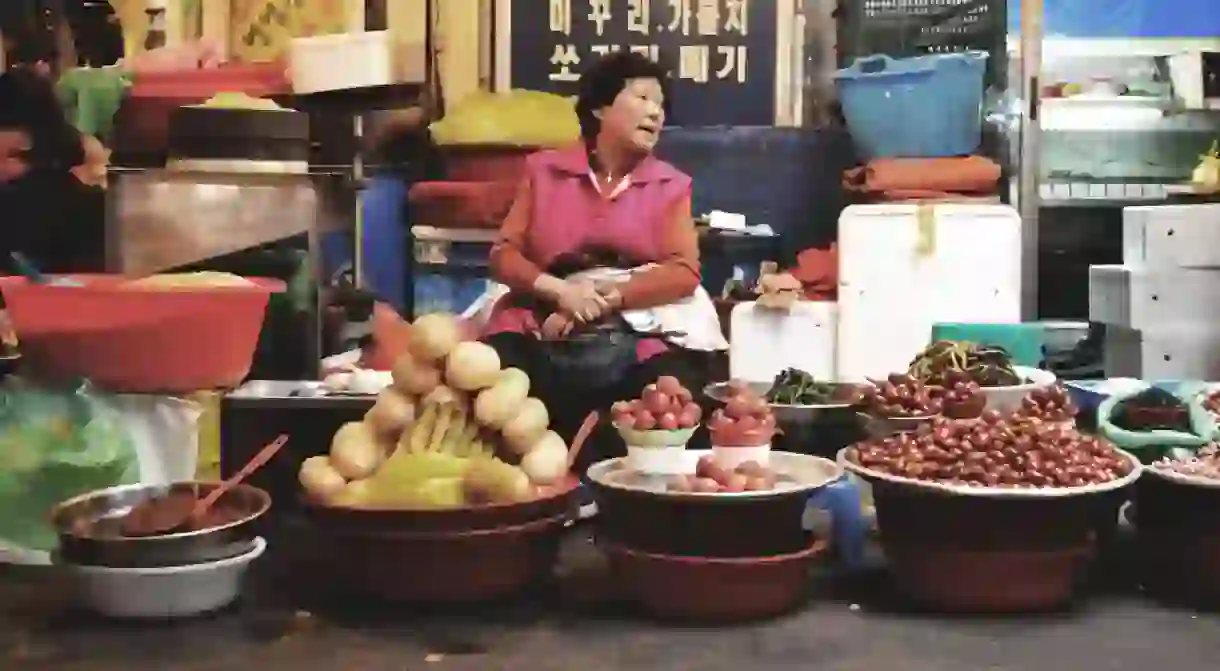The Best Traditional Markets in Jeju

Jeju’s vibrant traditional markets occupy a special place in the island’s culture. Many of the markets are five-day markets — much as the name suggests, they’re held once every five days. As their dates rotate, many sellers travel from market to market across the region. Historically, this movement was an important way to transfer information across the region. Today, the bustling and lively markets are still visited by locals old and young, along with tourists eager to try Jeju specialty street foods such as black pork skewers. Here are some of the best traditional markets on the island.
Jeju Minsok Five-day Market (제주민속5일장)
Market

This five-day market is the biggest in Jeju. It has over 1,000 stalls and covers approximately 40,000 square metres of space. You can find everything a local market would have here, and more — from locally grown produce such as garlic and hwanggeum hyang (a type of tangerine unique to Jeju Island), to plants, pets and fortune-tellers. It’s a good place to try out street food (although don’t go too late — the market closes at 7pm) and explore the many stalls. This market differs from other Jeju markets, as it has a Halmang Jangteo — meaning ‘grandma market’ — which is a designated area where women over 65 can sell their wares without paying any rent for the stall. Market dates are the 2nd, 7th, 12th, 17th, 22nd and 27th days of each month.
Seogwipo Hyangto Five-Day Market (서귀포향토오일시장)
Market
Dongmun Market (동문재래시장)
Market

Sewha Folk Five-day Market (세화 오일장)
Market
The Sewha Folk Five-day Market is the place to go to see an uber-traditional five-day market. It’s the largest market on Jeju Island’s eastern side, but it’s small, simple and rarely frequented by tourists. Prices are low and merchants often give free samples. You can also haggle — for the best deals, go towards the end of the day. It also has a monthly night market. Sehwa is known for excellent gukbap, a pork soup, using Jeju black pork. Market dates are the 5th, 10th, 15th, 20th, 25th and 30th of each month.
Donam Market (도남시장)
Market
This traditional market in Jeju City sells a variety of goods, but it’s especially good for clothes — including traditional hanboks. It’s not a touristic destination, so it is good for clothes shopping at slightly lower prices. There are many inexpensive restaurants and food stalls to sate your hunger, and it’s close to the Sungshin Women’s University shopping district. The stream nearest to the market (leading to Hansung University station) is a popular cherry blossom viewing spot in springtime.













